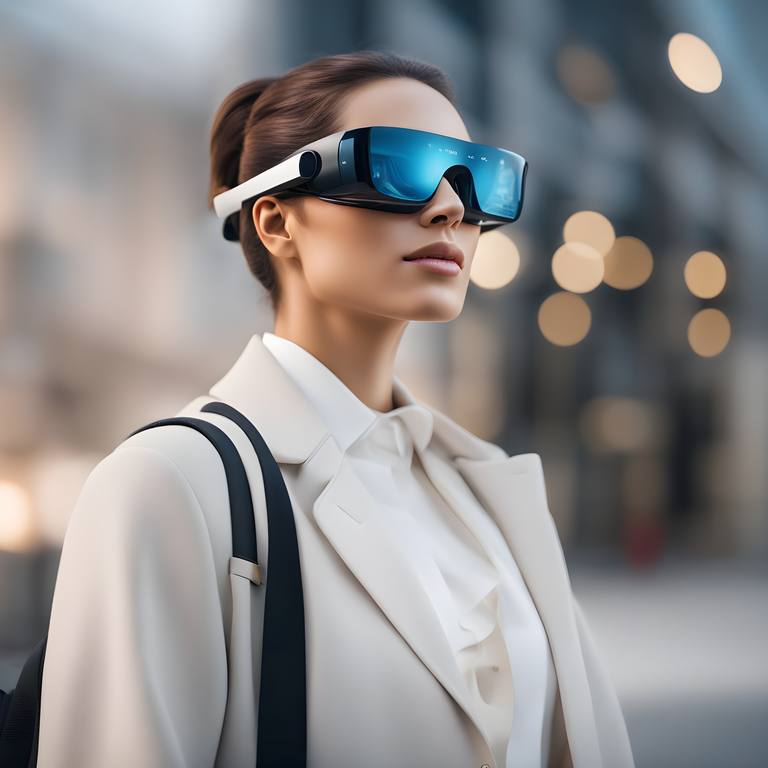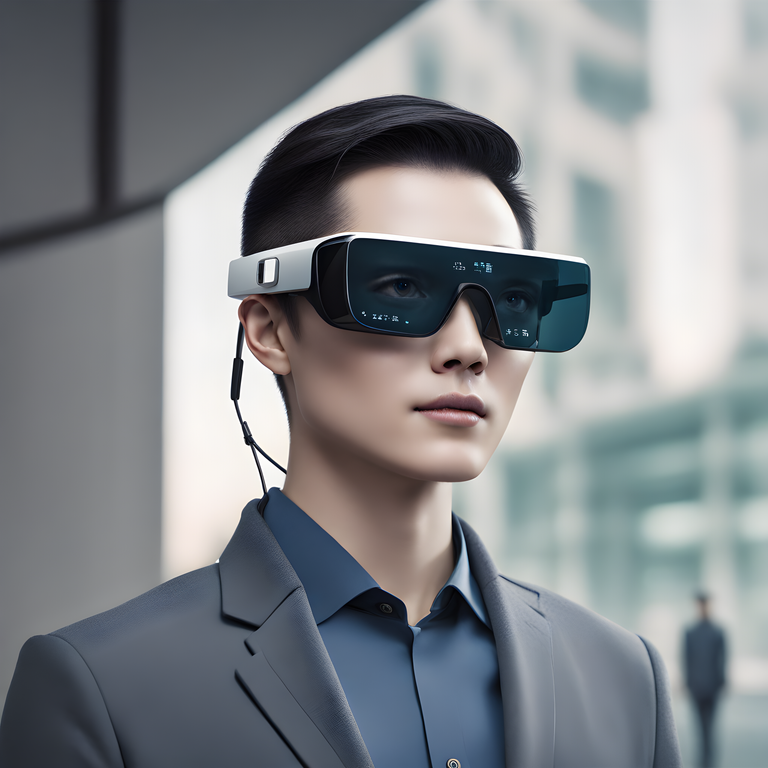Global Perspectives on Smart Glasses and Facial Recognition: A Complex Web of Human Rights and Ethics
Hi.
Today is about the Tech Big Bro and Sis!
We're living in a continuum evolution of the landscape of technology, and the interplay between human rights, ethics, and emerging surveillance tools like smart glasses and facial recognition remains a subject of intense debate. The deployment of these technologies, particularly in China, has ignited concerns surrounding individual privacy, civil liberties, and public safety. This extended article delves into a global panorama, shedding light on countries that have either embraced or rejected smart glasses and facial recognition technologies and how these decisions impact human rights and ethical considerations.
I have done some research related to the** Worldwide Adoption of Smart Glasses and Facial Recognition** and here is what I found:
China's Pioneering Role:
China has taken the lead in the adoption and development of smart glasses and facial recognition technology. Chinese law enforcement agencies have armed their officers with these innovative tools, incorporating them into their policing strategies. Notable instances include the city of Zhengzhou in Henan province, where smart glasses are being used for real-time suspect identification. In addition, companies like Megvii with its Face++ technology have become essential for various government and commercial applications.
More: A Global Mosaic of Advocates and Critics:
As the use of these technologies proliferates, global responses differ widely, with some nations enthusiastic adopters and others cautious and critical:
Here is what I know so far about China's Vigorous Advocacy:
China has made substantial investments in the development and application of facial recognition technology. Ambitious projects such as "Skynet" and "Xue Liang" epitomize the Chinese government's unwavering commitment to using these tools for public surveillance and safety.
European Union's Regulatory Embrace:
In stark contrast, the European Union (EU) has embraced stringent regulations, emphasizing the primacy of safeguarding human rights and ethical values. Proposals from the EU in 2020 underscore the importance of transparency, consent, and data protection in the use of facial recognition technology.
United States Mixed Stance:
In the United States, while facial recognition technology is used by some law enforcement agencies, there is a growing movement for regulation. Notably, in 2020, San Francisco became the first major city to ban the use of facial recognition technology by government agencies, citing concerns over civil liberties.
India's Complex Experience:
India's journey with facial recognition has been multifaceted. While the Delhi Police have effectively employed facial recognition technology to locate missing children, concerns regarding misuse and data security have prompted calls for stricter regulations.
Australia's Considered Approach:
Australia has opted for a more cautious approach. The government has proposed legislation that would grant law enforcement agencies the power to use facial recognition technology under specific circumstances, such as counterterrorism and serious criminal investigations.
But how about we have a look now, in 2023, at the Ethical and Human Rights Dilemmas related to this topic?

source: all images in this article are AI-generated by me in wepik.com
A. Privacy and Surveillance
Invasion of Privacy:
The deployment of smart glasses and facial recognition in China has drawn extensive criticism for its invasive nature. Citizens can be subjected to surveillance without their knowledge or consent, engendering significant concerns regarding privacy rights.
Discrimination:
Facial recognition technology, while promising, is not infallible and has a propensity for misidentifying individuals. Notably, studies in the United States have revealed that these technologies can disproportionately misidentify individuals with darker skin tones, accentuating the ethical dilemmas associated with their application.
B. International Reactions
South Korea's Stringent Privacy Laws:
South Korea, home to technology giants like Samsung, has enacted stringent privacy laws to safeguard its citizens against unwarranted surveillance. The country acknowledges the importance of protecting human rights while ensuring public safety.
Canada's Mixed Regulatory Landscape:
Canada presents a mixed regulatory landscape. While the use of facial recognition technology by the private sector is prevalent, there are increasing calls for government regulation to address the ethical and human rights concerns surrounding its use.
Japan's Cautious Approach:
Japan has adopted a cautious approach to facial recognition technology, particularly in law enforcement. The government is actively evaluating the technology's ethical implications, seeking a balance between public safety and individual rights.
United Kingdom's Expanding Usage:
The United Kingdom has seen the widespread implementation of facial recognition technology. Its use extends from public spaces to private businesses. However, this has sparked intense debate about privacy and the ethical dimensions of its usage.
Brazil's Emergent Ethical Debates:
Brazil is an example of a country experiencing emergent ethical debates around facial recognition. Advocacy groups and lawmakers are scrutinizing its use, pushing for legislation that respects human rights.
And let's get an even clearer picture!
Striking a Balance: Regulation and Transparency
A. Necessity of Robust Regulation
The delicate equilibrium between public safety and individual privacy necessitates comprehensive regulation. Governments should define the parameters of permissible smart glasses and facial recognition technology use. These regulations should establish the conditions under which these technologies can be deployed and mandate informed consent.
B. Imperative for Transparency and Accountability
For the integration of these technologies to be sustainable, law enforcement agencies must be transparent about their use and held accountable for any potential misuse. Oversight mechanisms and reporting protocols should be firmly established to maintain public trust.

Source: AI-generated in wepik.com
➡️ And, finally, I have come to this conclusion:
The global discourse on smart glasses and facial recognition underscores the intricate interplay between public safety, personal privacy, and ethical considerations. While China has taken significant strides in the application of these technologies, international responses continue to vary widely. Some countries, such as the European Union, prioritize human rights and ethical integrity, while others, like the United States, are navigating the complexities of crafting tighter regulations.
As technology persists in its progression, societies across the globe will encounter analogous challenges in reconciling public safety and individual privacy. The Chinese experience serves as a compelling case study, underlining the importance of ethical frameworks and legal safeguards in the development and deployment of surveillance technologies. The future of smart glasses and facial recognition technology hinges on society's ability to strike a harmonious balance that ensures technology's utility for the greater good while respecting fundamental human rights and ethical standards.
💭What do you think about this topic?
I'd like to know more about what people think should be done with respect to our human rights and how.
Thank you for reading!
With respect,
Zpek
Posted with STEMGeeks

It's a quite controversial topic, we must analyze how large the margin of error is and how detrimental it can be to people's safety.
Yay! 🤗
Your content has been boosted with Ecency Points, by @zpek.
Use Ecency daily to boost your growth on platform!
Support Ecency
Vote for new Proposal
Delegate HP and earn more